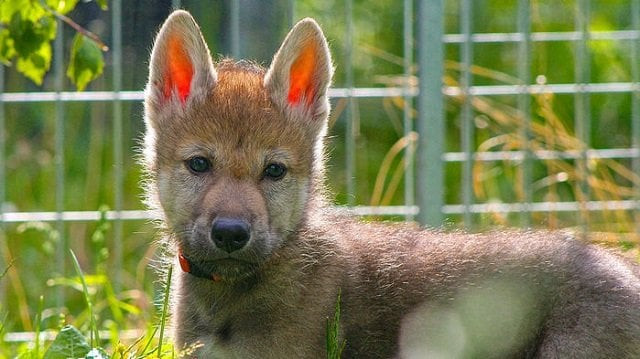'Wolf puppies play fetch, too'
Wolves also have the ability to interpret subtle human social cues like dogs, reveals study

PHOTO COURTESY: CHRISTINA HANSEN WHEAT
Such scenes have no doubt played out over millenia, symbolising the unshakeable bond of friendship between humanity and our "best friends" ever since dogs were domesticated from wolves at least 15,000 years ago.
But a new study in the journal iScience shows that some wolf puppies also know how to play fetch, upending the long-held hypothesis that the ability to interpret subtle human social cues is unique to dogs and arose as a result of selective breeding.
The finding was made by chance as researchers in Sweden subjected 13 wolf puppies born to three different litters to a series of behavioural tests.
The team was raising wolf and dog puppies from the age of 10 days old in order to answer fundamental questions about how the two species differ, and what they have in common.
Risking lives to rescue horses in Philippine volcano 'no man's land'
It wasn't until the third year of the program that lead author Christina Hansen Wheat, a behavioural ecologist at the University of Stockholm noticed that some eight-week-old wolf pups actually paid attention to a stranger throwing a ball and asking them to return it, despite no prior training.
"When I saw the first wolf pup fetch the ball, I got goosebumps,whoa, that's unexpected," she said. "Then I had two more doing the same thing, and so that was pretty exciting."
The pups were subjected to consecutive trials, with a total of three of the 13 showing the ability to play the game consistently.
This suggests that, while rare, variation among wolves in so-called "human directed behaviour" was a key factor in which ones were selected by prehistoric people for further breeding.
Hansen Wheat believes the finding adds an intriguing "new piece to the puzzle" of the question of dog domestication, a deeply contested area of study, with scientists in disagreement over the timeline, geographic locations and conditions that led to one of the most fruitful partnerships in human history.




1724148693-0/BeFunky-collage]_____-(24)1724148693-0-208x130.webp)














COMMENTS
Comments are moderated and generally will be posted if they are on-topic and not abusive.
For more information, please see our Comments FAQ